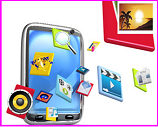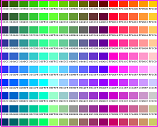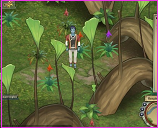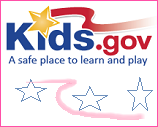Posted on January 20th, 2014 by Mary Lord
 Whether its swifter, safer bobsleds or high-performance speed-skating suits, science and engineering are as much on display at the 2014 Winter Olympics at Sochi, Russia. Catch the high-tech action in the latest installment of the Emmy Award-winning “Science of Sports” series from the National Science Foundation and NBC Learn.
Whether its swifter, safer bobsleds or high-performance speed-skating suits, science and engineering are as much on display at the 2014 Winter Olympics at Sochi, Russia. Catch the high-tech action in the latest installment of the Emmy Award-winning “Science of Sports” series from the National Science Foundation and NBC Learn.
Read More
Filed under: For Teachers, Grades 6-8, Grades 9-12, Grades K-5, Special Features, Web Resources | Comments Off on Science & Engineering of the Sochi Olympics
Tags: 2014 Olympics, athletics, Internet Resources, National Science Foundation, NBCLearn, NSF, science and engineering of sports, Sochi Olympics, STEM education, STEM videos, Web Resources, Winter Olympics
Posted on November 27th, 2013 by Mary Lord
 Middle and high school students can win up to $15,000 for their school by dreaming up the most compelling concept for an education, healthcare, or energy app in the Verizon Innovative App Challenge. Deadline for submission is December 17, 2013.
Middle and high school students can win up to $15,000 for their school by dreaming up the most compelling concept for an education, healthcare, or energy app in the Verizon Innovative App Challenge. Deadline for submission is December 17, 2013.
Read More
Filed under: Competitions and Contests, Grades 6-8, Grades 9-12, Special Features | Comments Off on 2014 Verizon App Contest
Tags: Competitions for Students, Contest, Verizon Innovative App Challenge
Posted on November 27th, 2013 by Mary Lord
 Computing is all around us, from movies to manufacturing to marketing. But only a handful of Americans learn how computers work or can create software, websites, or applications. Computer Science Education Week (December 9-15, 2013) aims to change that equation. This year’s effort: an Hour of Code that organizers hope will engage 10 million students.
Computing is all around us, from movies to manufacturing to marketing. But only a handful of Americans learn how computers work or can create software, websites, or applications. Computer Science Education Week (December 9-15, 2013) aims to change that equation. This year’s effort: an Hour of Code that organizers hope will engage 10 million students.
Read More
Filed under: For Teachers, Grades 6-8, Grades 9-12, Grades K-5, Special Features | Comments Off on Computer Science Education Week 2013
Tags: code writing, code.org, Computer Engineering, Computer Science, computer science education week, Grace Hopper, Public Policy, STEM education, Technology for Learning
Posted on November 25th, 2013 by Mary Lord
 The Kavli “Science In Fiction” contest asks middle and high school students to create short videos explaining how current or developing technologies could turn interplanetary travel, cyborgs or other science fiction concepts into reality. Entry period runs from Nov. 1, 2013 to March 21, 2014.
The Kavli “Science In Fiction” contest asks middle and high school students to create short videos explaining how current or developing technologies could turn interplanetary travel, cyborgs or other science fiction concepts into reality. Entry period runs from Nov. 1, 2013 to March 21, 2014.
Read More
Filed under: Competitions and Contests, Grades 6-8, Grades 9-12, K-12 Outreach Programs, Special Features | Comments Off on Kavli Science-In-Fiction Contest
Tags: Competitions for Students, Contest, Grades 6-8, Grades 9-12, Kavli, USA Science and Engineering Fesitval 2014, video
Posted on August 29th, 2013 by Mary Lord
 Computer science has the highest pay for new college graduates, twice the national average job growth of more than double the national average, and applications that stretch from rock music to medicine. Yet 9 in 10 schools don’t teach programming. Code.org hopes to change that with a host of free resources to get kids as young as four creating websites and apps.
Computer science has the highest pay for new college graduates, twice the national average job growth of more than double the national average, and applications that stretch from rock music to medicine. Yet 9 in 10 schools don’t teach programming. Code.org hopes to change that with a host of free resources to get kids as young as four creating websites and apps.
The answer is computer programming, and advocates from Microsoft founder Bill Gates to former president Bill Clinton are pushing to include it in the K-12 curriculum.
Far from being complicated algorithms only a geek could master, code writing can be learned by just about anyone — even four-year-olds. Code.org has compiled a host of websites, courses, and other free resources to help students hone programming skills from building websites to creating phone apps. There also are tips for using code writing and programming projects and activities in math or science classes to cover content standards.
Read More
Filed under: For Teachers, Grades 6-8, Grades 6-8, Grades 9-12, Grades 9-12, Grades K-5, Grades K-5, K-12 Outreach Programs, Lesson Plans, Special Features, Web Resources | Comments Off on Code Calling
Tags: code writing, code.org, Computer Programming, Computer Science, Curriculum, Internet Resources, Lesson Plan, Resources for Teachers, STEM education, Teacher Resources, Technology for Learning, Website
Posted on August 29th, 2013 by Mary Lord
 Can MOOGs – massive multiplayer online games – help teach students to think like scientists and engineers? MIT researchers think so, and they have developed a game based on the Next Generation Science Standards and common core mathematics standards to teach high school biology, algebra, geometry, probability, and statistics.
Can MOOGs – massive multiplayer online games – help teach students to think like scientists and engineers? MIT researchers think so, and they have developed a game based on the Next Generation Science Standards and common core mathematics standards to teach high school biology, algebra, geometry, probability, and statistics.
Read More
Filed under: For Teachers, Grades 6-8, Grades 9-12, K-12 Outreach Programs, Web Resources | Comments Off on MIT Unveils Multiplayer Online STEM Game
Tags: Bill and Melinda Gates Foundation, Common Core State Mathematics Standards, education technology, gaming, massive multiplayer online game, MIT, MMO, NGSS, online game, Radix Endeavor, STEM, STEM education
Posted on July 31st, 2013 by Mary Lord
 To mark the Year of the Solar System, NASA and PBS’s Design Squad Nation have teamed up to create a series of fun, space-based engineering challenges for children in grades 4 to 8.
To mark the Year of the Solar System, NASA and PBS’s Design Squad Nation have teamed up to create a series of fun, space-based engineering challenges for children in grades 4 to 8.
Read More
Filed under: Class Activities, For Teachers, Grades 6-8, Grades 6-8, Grades K-5, Grades K-5, K-12 Outreach Programs, Web Resources | Comments Off on Mission: Solar System
Tags: Aerospace Engineering, Class Activities, Design Squad, Grades 6-8, hands-on activities, Mars rover, NASA, PBS, Solar System, Space, STEM education, Teacher Resources, Web Resources
Posted on June 19th, 2013 by Mary Lord
 Looking for tips on how to arrange desks to promote hands-on learning? How about lessons that combine engineering, technology, and earth sciences? Teachers TryScience, a website hosted by the New York Hall of Science for K-12 STEM educators, has free, engaging lessons, teaching strategies, collaboration tools, and other resources in English, Spanish, and Vietnamese designed to spark students’ interest in STEM.
Looking for tips on how to arrange desks to promote hands-on learning? How about lessons that combine engineering, technology, and earth sciences? Teachers TryScience, a website hosted by the New York Hall of Science for K-12 STEM educators, has free, engaging lessons, teaching strategies, collaboration tools, and other resources in English, Spanish, and Vietnamese designed to spark students’ interest in STEM.
Read More
Filed under: For Teachers, Grades 6-8, Grades 9-12, Grades K-5, Web Resources | Comments Off on Web Resource: Teachers TryScience
Tags: Class Activities, Grades 6-8, Grades 9-12, Grades K-5, Lesson Plans, New York Hall of Science, Resources for Teachers, STEM teaching, STEM videos, teachengineering, tutorials, Web Resources
Posted on June 19th, 2013 by Mary Lord
 Students can forget what they learned over the summer. To help stave off the slide, the U.S. government’s Kids.gov offers activities for kindergarteners through 8th graders, as well as resources for parents and teachers. Join the live Twitter chat June 20, 2013 to discuss fun and educational activities to do with kids this summer.
Students can forget what they learned over the summer. To help stave off the slide, the U.S. government’s Kids.gov offers activities for kindergarteners through 8th graders, as well as resources for parents and teachers. Join the live Twitter chat June 20, 2013 to discuss fun and educational activities to do with kids this summer.
Read More
Filed under: Grades 6-8, Grades K-5, K-12 Outreach Programs, Web Resources | Comments Off on Summer Learning @ Kids.gov
Tags: Internet Resources, Resources for Teachers, Technology for Learning
 Whether its swifter, safer bobsleds or high-performance speed-skating suits, science and engineering are as much on display at the 2014 Winter Olympics at Sochi, Russia. Catch the high-tech action in the latest installment of the Emmy Award-winning “Science of Sports” series from the National Science Foundation and NBC Learn.
Whether its swifter, safer bobsleds or high-performance speed-skating suits, science and engineering are as much on display at the 2014 Winter Olympics at Sochi, Russia. Catch the high-tech action in the latest installment of the Emmy Award-winning “Science of Sports” series from the National Science Foundation and NBC Learn.








 Middle and high school students can win up to $15,000 for their school by dreaming up the most compelling concept for an education, healthcare, or energy app in the Verizon Innovative App Challenge. Deadline for submission is December 17, 2013.
Middle and high school students can win up to $15,000 for their school by dreaming up the most compelling concept for an education, healthcare, or energy app in the Verizon Innovative App Challenge. Deadline for submission is December 17, 2013. Computing is all around us, from movies to manufacturing to marketing. But only a handful of Americans learn how computers work or can create software, websites, or applications. Computer Science Education Week (December 9-15, 2013) aims to change that equation. This year’s effort: an Hour of Code that organizers hope will engage 10 million students.
Computing is all around us, from movies to manufacturing to marketing. But only a handful of Americans learn how computers work or can create software, websites, or applications. Computer Science Education Week (December 9-15, 2013) aims to change that equation. This year’s effort: an Hour of Code that organizers hope will engage 10 million students. The Kavli “Science In Fiction” contest asks middle and high school students to create short videos explaining how current or developing technologies could turn interplanetary travel, cyborgs or other science fiction concepts into reality. Entry period runs from Nov. 1, 2013 to March 21, 2014.
The Kavli “Science In Fiction” contest asks middle and high school students to create short videos explaining how current or developing technologies could turn interplanetary travel, cyborgs or other science fiction concepts into reality. Entry period runs from Nov. 1, 2013 to March 21, 2014. Computer science has the highest pay for new college graduates, twice the national average job growth of more than double the national average, and applications that stretch from rock music to medicine. Yet 9 in 10 schools don’t teach programming. Code.org hopes to change that with a host of free resources to get kids as young as four creating websites and apps.
Computer science has the highest pay for new college graduates, twice the national average job growth of more than double the national average, and applications that stretch from rock music to medicine. Yet 9 in 10 schools don’t teach programming. Code.org hopes to change that with a host of free resources to get kids as young as four creating websites and apps. Can MOOGs – massive multiplayer online games – help teach students to think like scientists and engineers? MIT researchers think so, and they have developed a game based on the Next Generation Science Standards and common core mathematics standards to teach high school biology, algebra, geometry, probability, and statistics.
Can MOOGs – massive multiplayer online games – help teach students to think like scientists and engineers? MIT researchers think so, and they have developed a game based on the Next Generation Science Standards and common core mathematics standards to teach high school biology, algebra, geometry, probability, and statistics. To mark the Year of the Solar System, NASA and PBS’s Design Squad Nation have teamed up to create a series of fun, space-based engineering challenges for children in grades 4 to 8.
To mark the Year of the Solar System, NASA and PBS’s Design Squad Nation have teamed up to create a series of fun, space-based engineering challenges for children in grades 4 to 8. Looking for tips on how to arrange desks to promote hands-on learning? How about lessons that combine engineering, technology, and earth sciences? Teachers TryScience, a website hosted by the New York Hall of Science for K-12 STEM educators, has free, engaging lessons, teaching strategies, collaboration tools, and other resources in English, Spanish, and Vietnamese designed to spark students’ interest in STEM.
Looking for tips on how to arrange desks to promote hands-on learning? How about lessons that combine engineering, technology, and earth sciences? Teachers TryScience, a website hosted by the New York Hall of Science for K-12 STEM educators, has free, engaging lessons, teaching strategies, collaboration tools, and other resources in English, Spanish, and Vietnamese designed to spark students’ interest in STEM.  Students can forget what they learned over the summer. To help stave off the slide, the U.S. government’s Kids.gov offers activities for kindergarteners through 8th graders, as well as resources for parents and teachers. Join the live Twitter chat June 20, 2013 to discuss fun and educational activities to do with kids this summer.
Students can forget what they learned over the summer. To help stave off the slide, the U.S. government’s Kids.gov offers activities for kindergarteners through 8th graders, as well as resources for parents and teachers. Join the live Twitter chat June 20, 2013 to discuss fun and educational activities to do with kids this summer.